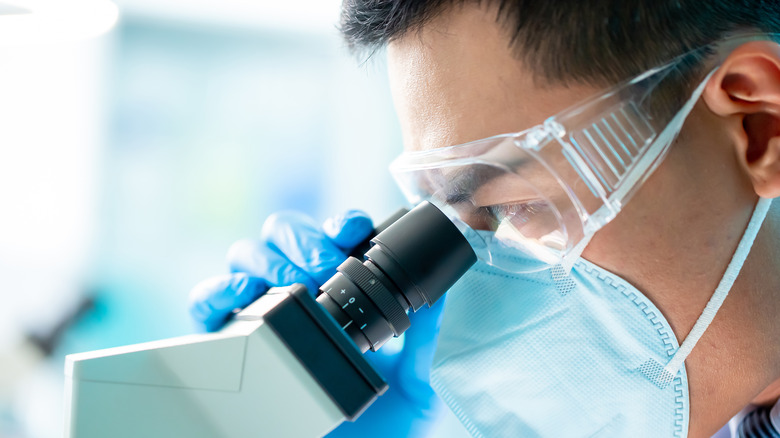What Is Autophagy?
When you sit through a high school or college science class, it rarely crosses your mind that the terms in your textbook's vocabulary box will pop up one day when you're researching wellness trends. And, largely, they don't. Trends like clean eating and fasting focus more on calories, carbohydrates, and fats than they do on cellular processes. These terms are part of our everyday lives while words like "autophagy" just don't come up that often. That is, until now. Especially if you're looking into the health and weight loss benefits of fasting.
Fasting does have a wide array of benefits, after all. The Mayo Clinic says that, when done safely, intermittent fasting can help people to lose weight. This, in turn, can reduce their risk of diseases like stroke and diabetes. Boulder Medical Center points out that much of the research supporting fasting's benefits are based on results in animals. But still, the Center says, humans can find hope in the studies. We know, for instance, that fasting can push the body into processes that it won't engage in when we eat regularly (or too much). And it happens that autophagy is one of these processes.
Taking out the trash
Autophagy, as defined by Merriam-Webster, is a process through which enzymes break down damaged or aged cells. The components are then used to repair healthier cells and build new, undamaged cells to replace those that are lost. A study review in Ageing Research Reviews goes into more detail on the process, stating that it is a sort of internal housekeeping process that allows our bodies to adapt to stress. The study review goes on to say that both fasting and calorie restriction are excellent ways to induce autophagy and that the process may help reduce the impacts of certain diseases as well as the side effects of aging.
This information is backed up by Cedars-Sinai and many diet websites that tout the weight loss potential associated with autophagy. Unlike the diet websites, however, Cedars-Sinai is quick to point out that the effects are almost entirely unstudied, another point shared with the study review. Cedars-Sinai also states that no specific diet or fasting technique has been proven to induce autophagy, rendering any diet making those claims a bit suspect. As an added bonus, the article also reveals that people who avoid eating late at night are also likely to experience autophagy while asleep, which means fasting may not be required.


